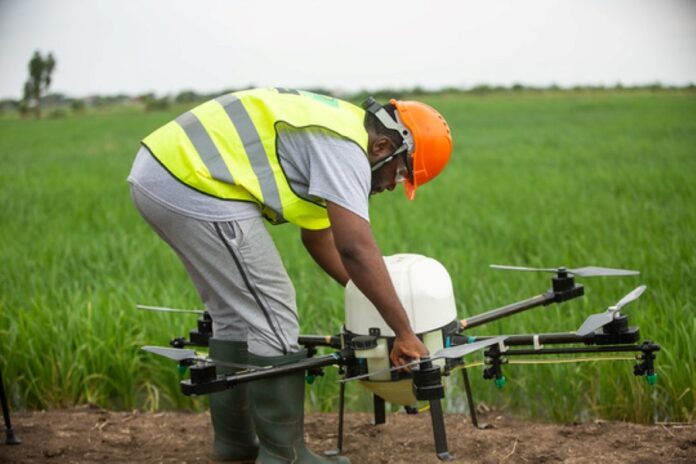A study by Muzari et al. (2012) titled “The impacts of technology adoption on smallholder agricultural productivity in sub-Saharan Africa: A review,” published in the Journal of Sustainable Development, reveals that sub-Saharan Africa continues to face critical food production challenges driven by factors such as low rainfall, nutrient-poor soils, limited access to irrigation, and the slow uptake of modern farming technologies.
“
Technology adoption can significantly boost smallholder productivity in sub-Saharan Africa, but success depends on access, support, and awareness.– Muzari et al. 2012
This study explores how the adoption of agricultural technologies influences productivity, poverty reduction, and environmental sustainability among smallholder farmers in Sub-Saharan Africa. It highlights both the challenges impeding progress and the transformative potential of technology in enhancing agricultural outcomes.
Sub-Saharan Africa continues to face critical food production challenges driven by factors such as low rainfall, nutrient-poor soils, limited access to irrigation, and the slow uptake of modern farming technologies. Smallholder farmers, who form the backbone of the region’s agriculture, often struggle with high input costs, limited resources, and inadequate institutional support. The study emphasizes that adopting improved agricultural technologies—such as high-yield crop varieties, advanced soil and water management techniques, and effective weed control—can significantly boost productivity. However, successful adoption largely depends on farmers’ awareness, access to assets, and the availability of supportive institutions and infrastructure.
Interestingly, the research also acknowledges the value of traditional farming practices. Techniques like mixed cropping are highlighted as efficient and cost-effective under specific conditions, suggesting that blending modern and traditional methods could offer practical solutions. To promote wider technology adoption, the study recommends reducing the cost of agricultural inputs, increasing financial and institutional support, enhancing agricultural extension services, and investing in rural infrastructure. Ultimately, overcoming the barriers to technology adoption could play a pivotal role in improving agricultural productivity, reducing poverty, and ensuring food security across Sub-Saharan Africa.
How the Study was Conducted
The authors analyze existing literature to evaluate how adopting technology affects smallholder farming in the region. Rather than presenting new fieldwork, the authors synthesize data from various studies, reports, and experiences across sub-Saharan Africa. The study focuses on key factors that influence technology adoption, including assets, income, institutions, vulnerability, awareness, labor availability, and farmer innovativeness. By comparing traditional agricultural methods with modern technologies, the authors assess improvements in productivity and efficiency. Drawing on regional examples from multiple countries, the article offers a broad overview of both the challenges and potential benefits associated with agricultural technology adoption in sub-Saharan Africa.
What the Authors Found
The authors found that technology adoption has significant potential to improve agricultural productivity among smallholder farmers in sub-Saharan Africa, but the process is complex and influenced by multiple factors such as high costs of technologies, socioeconomic constraints, and limited infrastructure.
Why is this important
Improving Agricultural Productivity: Smallholder farmers form the backbone of agriculture in sub-Saharan Africa, but their productivity has remained low due to reliance on traditional methods and limited access to modern technologies. By adopting effective agricultural technologies, these farmers can produce more food, meet local demand, and reduce dependency on imports.
Alleviating Poverty: Increased productivity can lead to higher income for smallholder farmers. As agriculture remains the primary livelihood for most rural populations in the region, technology adoption can provide a pathway out of poverty.
Enhancing Food Security: With population growth and climate change putting pressure on food production, adopting efficient technologies is crucial for ensuring that people have access to affordable, nutritious food.
Environmental Sustainability: The study also emphasizes the importance of integrating traditional practices with modern technologies. This approach can help maintain soil fertility, reduce environmental degradation, and promote sustainable farming.
Social Equity: By identifying barriers to adoption—such as lack of access to credit, education, and institutional support—the study provides actionable recommendations to make technologies accessible to all farmers, especially women and those in disadvantaged communities.
What the Authors Recommended
The authors make several key recommendations to enhance technology adoption and agricultural productivity among smallholder farmers in sub-Saharan Africa:
- Governments and stakeholders should reduce the costs of critical inputs like fertilizers, improved seeds, and equipment; it is essential to make them accessible to smallholder farmers.
- Improving access to credit and offering tailored financial packages, especially for disadvantaged groups like women-headed households, is recommended.
- Establishing effective research-extension linkages and providing in-service training for extension workers can ensure farmers receive updated and practical information.
- Modern technologies should be designed to complement traditional practices, leveraging their efficiency and cost-effectiveness in resource-scarce environments.
- Developing irrigation systems, better market access, and reliable transportation infrastructure is necessary to support farming activities.
- Institutions providing finance, insurance, and market information should be empowered to deliver services effectively to rural farmers.
- Introducing a holistic approach that combines multiple complementary technologies can encourage adoption and yield better results.
- Governments and stakeholders should address gender disparities, cultural practices, and societal norms to ensure inclusive technology adoption.
In conclusion, addressing the complex challenges facing smallholder agriculture in sub-Saharan Africa requires a strategic blend of modern technology and traditional practices. By lowering barriers to access, strengthening institutional support, and investing in infrastructure and education, stakeholders can unlock the transformative potential of agricultural innovation. Empowering farmers with the tools, knowledge, and resources they need will not only boost productivity and food security but also pave the way for long-term poverty reduction and sustainable development across the region.
















 The African Research (AR) Index is a comprehensive scholarly directory and database focused explicitly on journal publishers that publish and disseminate African research.
The African Research (AR) Index is a comprehensive scholarly directory and database focused explicitly on journal publishers that publish and disseminate African research.

